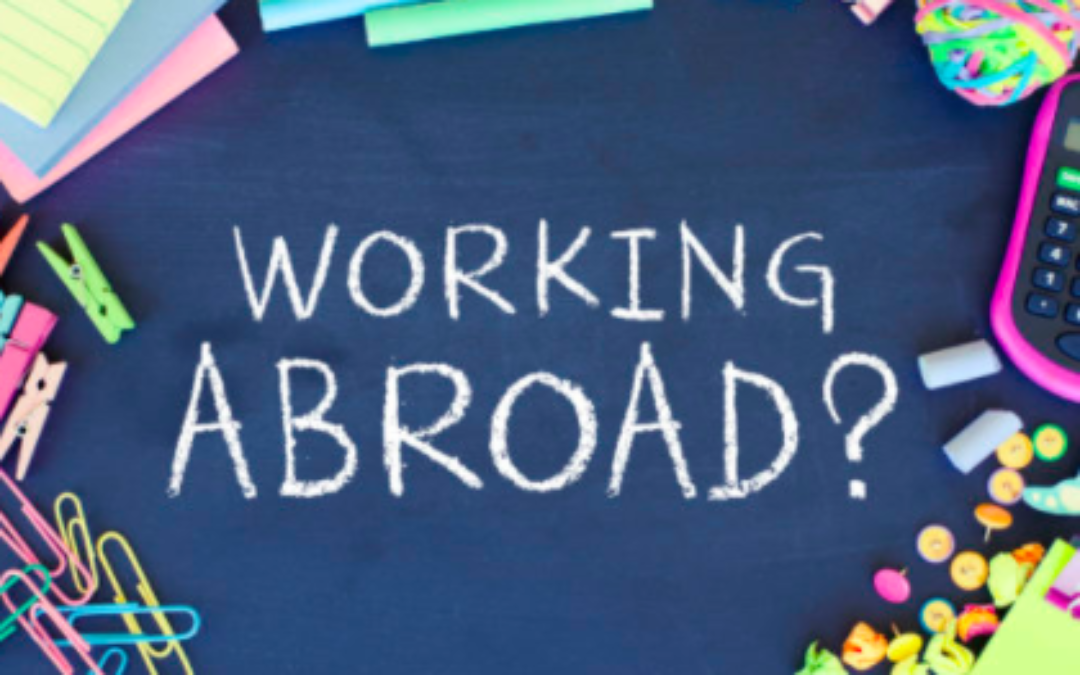Moving overseas to start a new chapter of your working life can be exciting, as well as daunting. Here are some tips from three well-travelled executives to help ease the process.
Research, plan and prepare for you move
Ciaran Kelly, General Manager for FCM Travel Solutions’ Middle East & Africa Region, recommends finding out as much as you can about where you will be staying first off. Having lived in Dubai for the past five years, he has also spent time living in England and France.
“You will settle in quicker and you won’t be as stressed,” he says.
He also advises learning the language before you leave home, and finding out about local business customs and cultures, so that you don’t put your foot in it as soon as you arrive. There are other things to consider too. For example, will you be able to get your regular prescription drugs? What does your travel insurance cover? Do you really need a car?
And don’t forget friends and family. You are probably going to get homesick, so it’s good if everyone knows how to FaceTime or Skype before you leave.
Websites can help
Caroline Kerr, FCM’s Operation Director for Greater China and Asia Partner Network, also suggests doing a lot of background research. Caroline has lived in Hong Kong for the past 13 years. She recommends starting with the Australian Government’s Smartraveller website, and compiling check lists so that you know you’ve got things covered.
Meanwhile, Jeannie Milne, Global Product Leader – Reporting & Analytics, suggests checking out teleport, a website that compares statistics like living costs, taxes, and economic growth. It also has a moving home checklist guide. Jeannie has lived in the Greater Boston area for the past year, following a three-year stint in Singapore.
Set budgets and goals and get financial advice
Caroline recommends seeking the help of a financial advisor who specialises in non-resident money matters.
Ciaran thinks you should have enough put aside to cover you for the first several weeks or months. You should also figure out the best ways to access your savings, until your salary comes in. Can you use your ATM card abroad with no fees, for example?
Jeannie believes a pre-departure plan is essential. “Work out what you are going to earn after taxes and try to do a budget around this. It may mean the difference between re-negotiating your wages earlier than you thought, or not.”
Settling into your new home
Caroline suggests that you manage your expectations.
“Things don’t operate as they do at home,” she says. “You can’t fight or change it. Acceptance is key. Settling into a new environment is going to be different for everyone. It may take you some time.”
Jeannie believes curiosity, empathy, and enthusiasm are all important, especially when it comes to understanding cultural events.
Meet new people quickly
Both Ciaran and Jeannie suggest telling friends that you are going abroad, because someone is sure to know someone who already lives there and can introduce you to other people.
“I recommend joining a chamber of commerce … as well as LinkedIn groups to form networks with fellow expats,” Ciaran says. Jeannie thinks joining an outdoor group boot camp is a good idea. Also, say yes to everything that seems positive in the first six months, while also being proactive, she says.
“Ask people out for coffee, or for a walk. There are often people in the same boat just looking for someone to reach out with an invitation.” She also recommends joining websites like InterNations and meetup, to connect with people outside your workplace.
Exploring your new country
Both Jeannie and Ciaran suggest inviting friends and family to stay as soon as you can, so that you can explore your new home together. Seeing nearby countries will add to the excitement.
Caroline also believes in making travel a priority. “Suddenly you may be in a country that is an easy international flight from anywhere, with airfares generally cheaper too,” she says. “Make the most of this economical accessibility to the rest of the world by preparing your bucket list.”
Jeannie agrees. “Consciously set a budget for your annual leave. I use half of mine to go home and half to travel locally, including super-local long weekends.”
Source: www.au.fcm.travel


